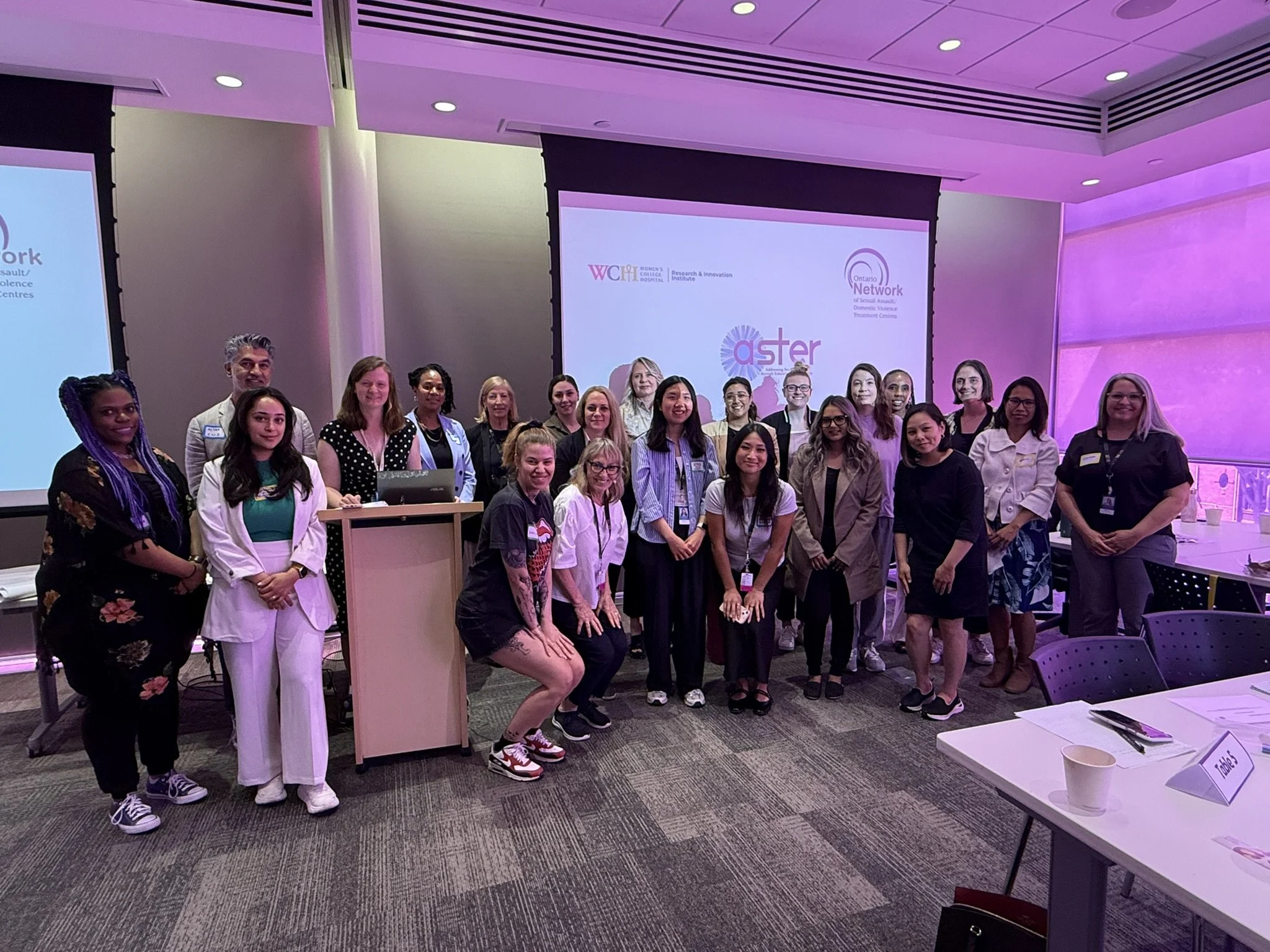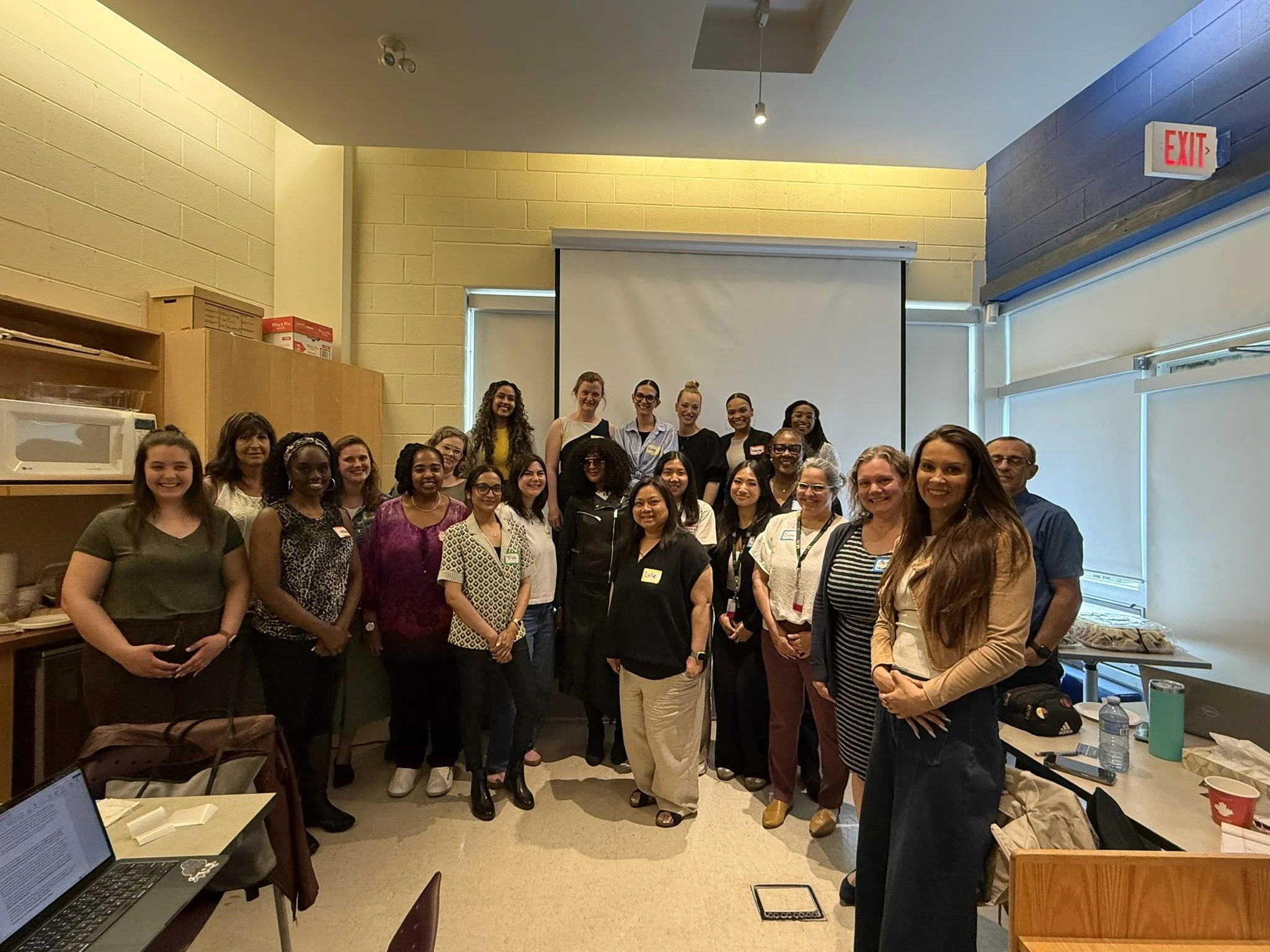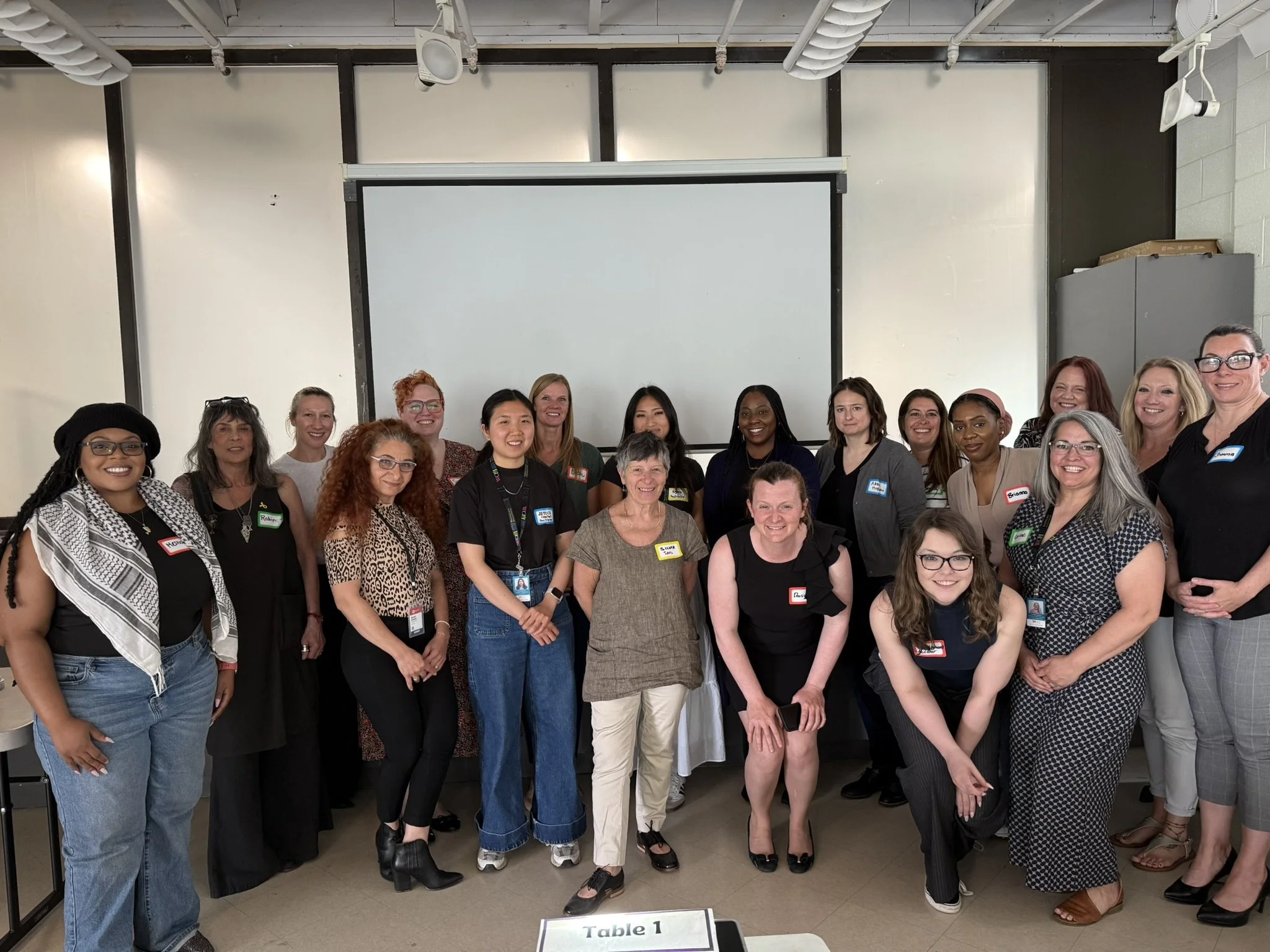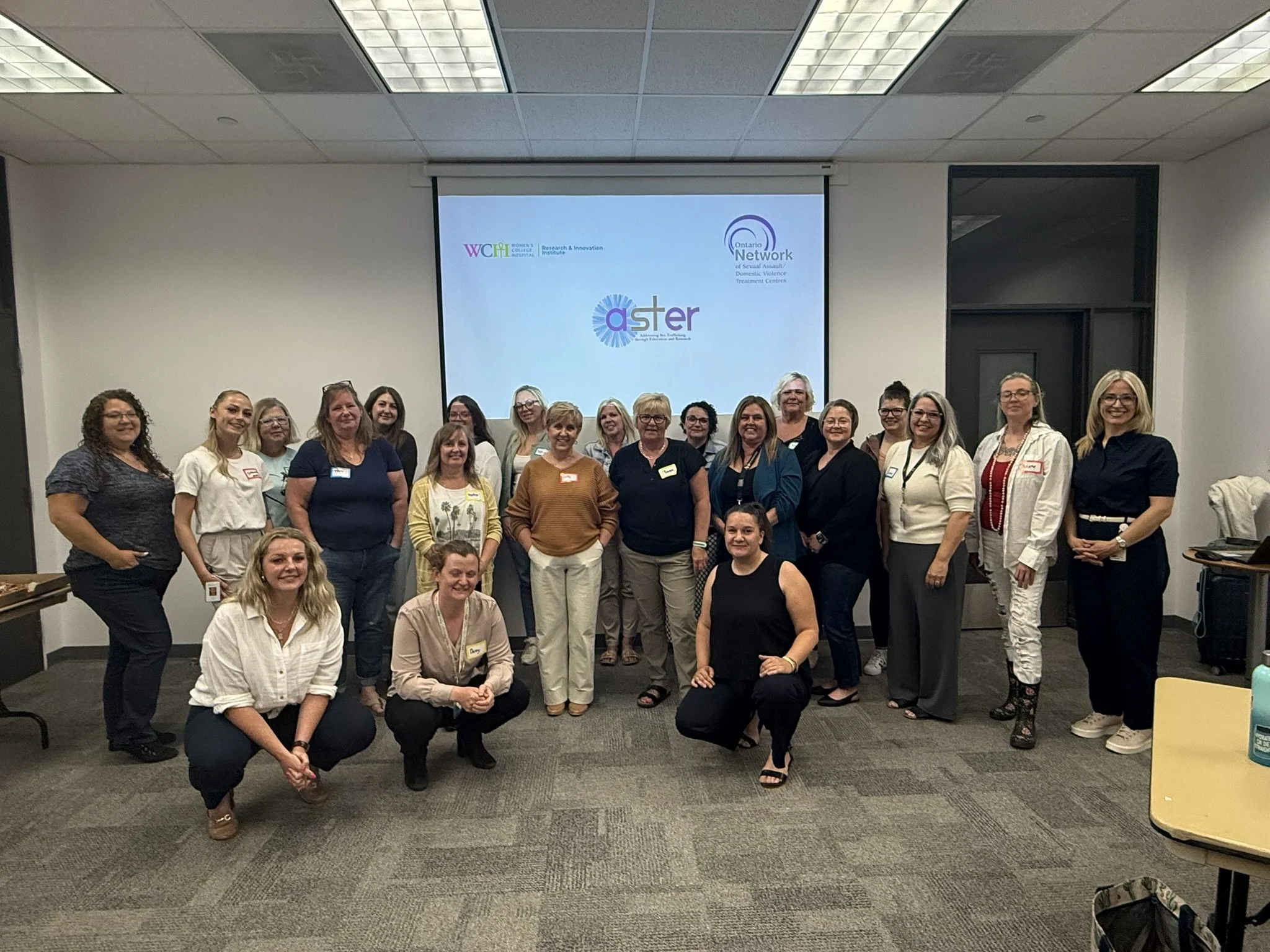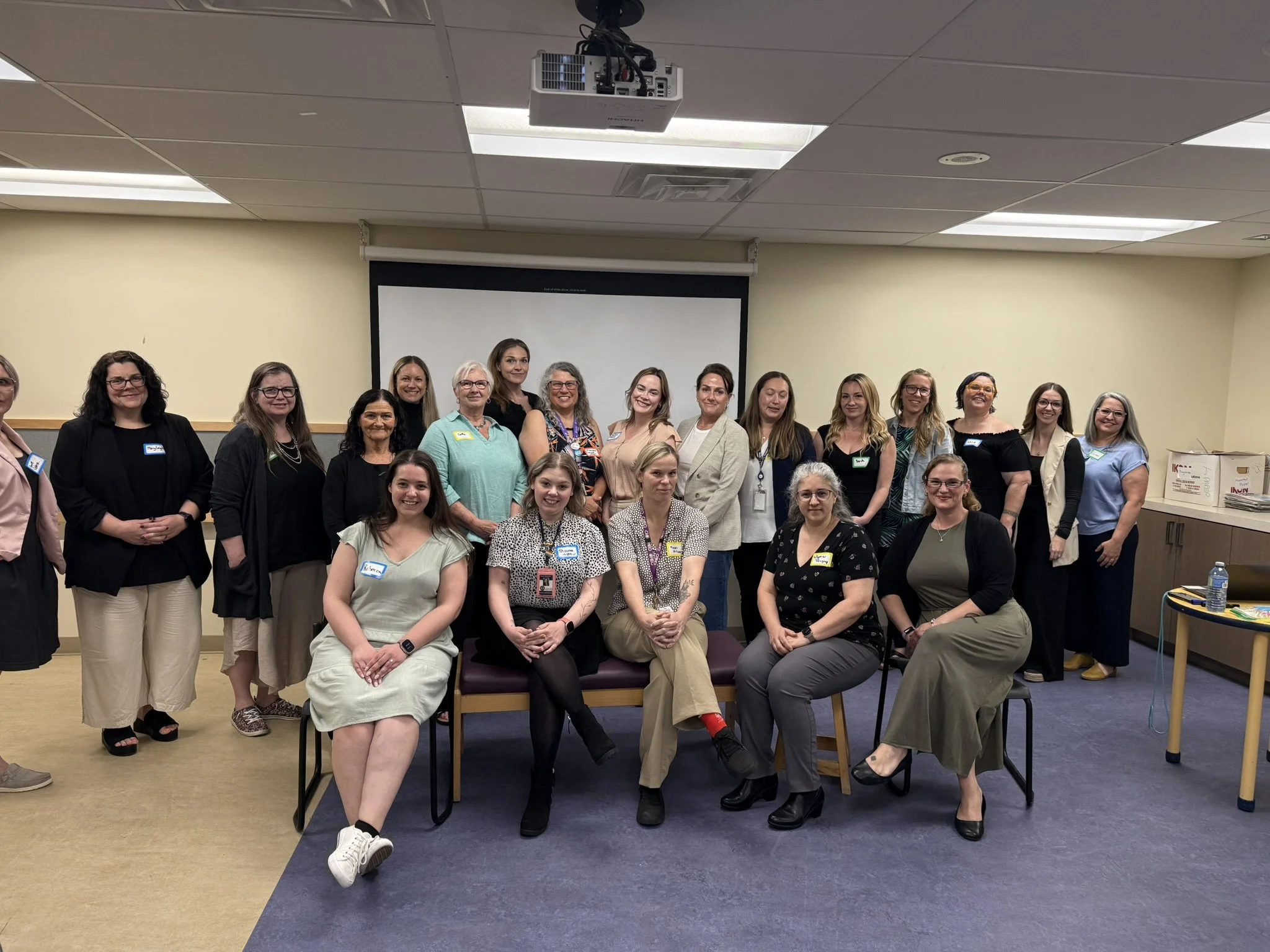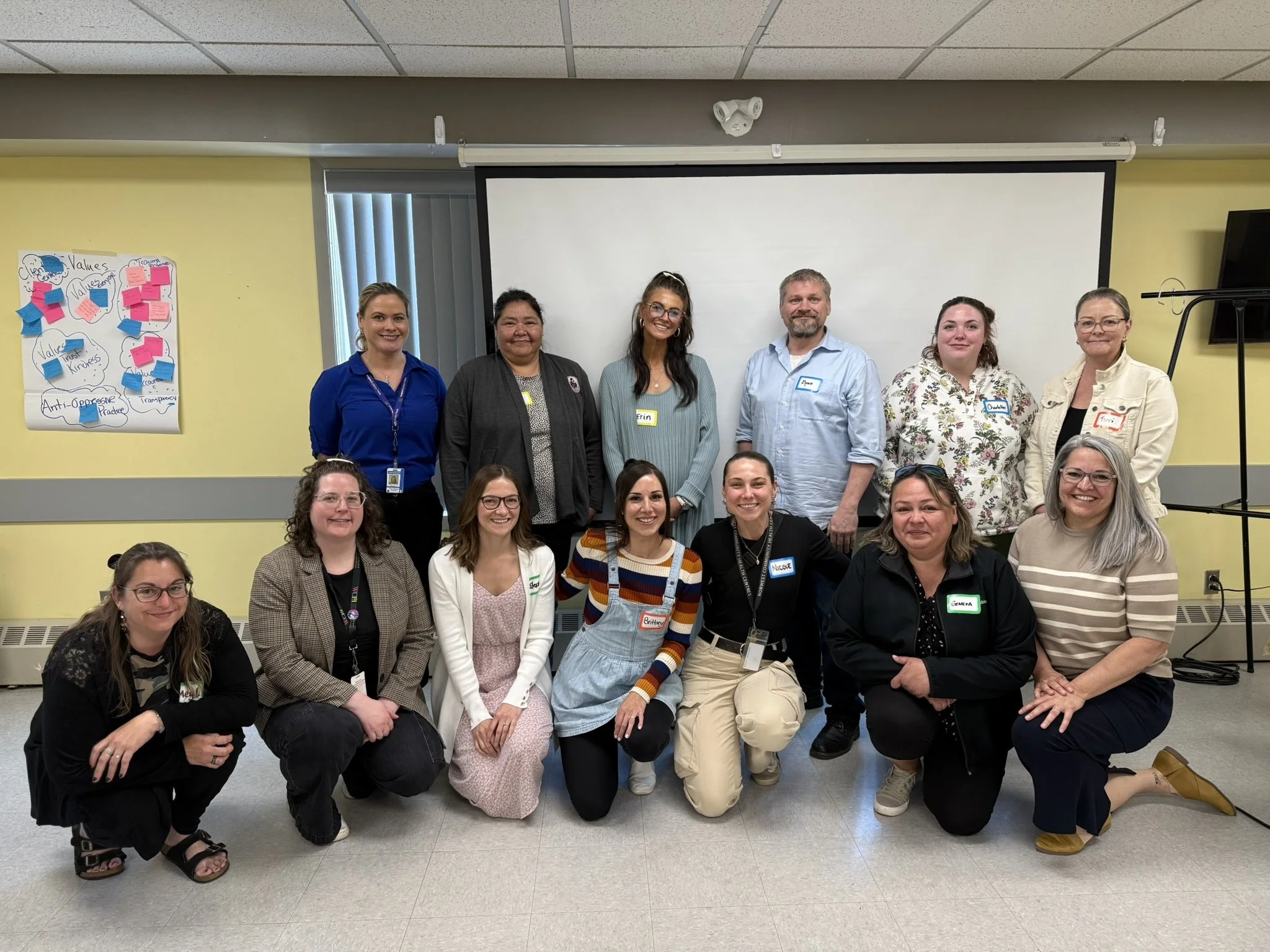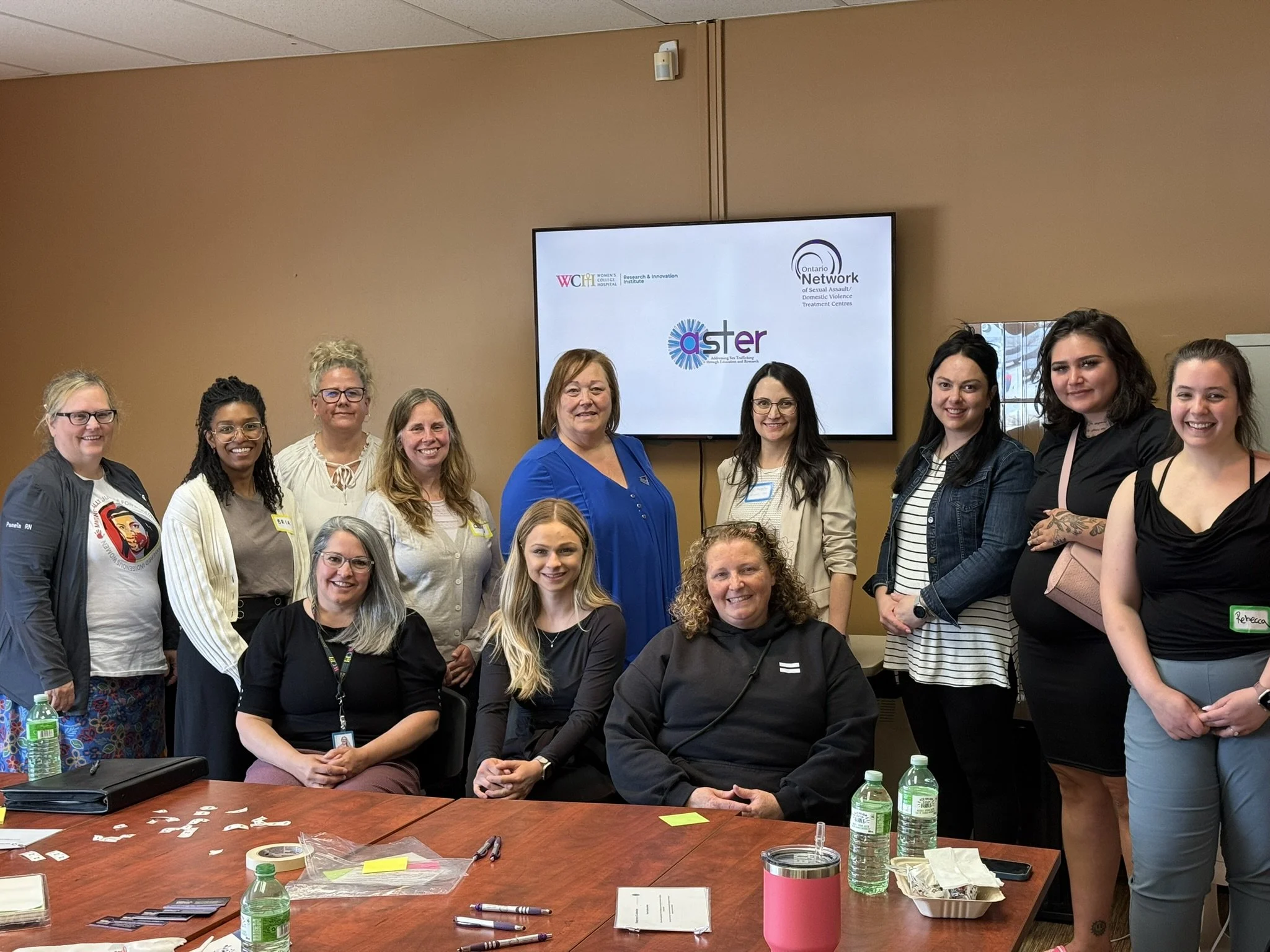Network Building
Context
In Canada, 66% of police reported sex trafficking incidents in Canada were reported in the province of Ontario (Convoy, 2022). Those affected often require health, community, and social supports to deal with the traumatic impacts of sex trafficking. However, the needs of persons sex trafficked are often not effectively addressed, leading to a cycling of in and out of treatment and placing them at risk of being re-trafficked (Jacobson et al., 2023; Recknor et al., 2023). A recent survey revealed that 95% of more than 500 health, social service, and community providers across Canada believed they would benefit from additional training on sex trafficking (Forte et al., submitted); few strongly agreed that they could provide appropriate resources and referrals (8%) and collaborate with other professionals to support persons sex trafficked (20%; Du Mont et al., unpublished data). Across diverse service providers interviewed, there was a strong call to jointly mobilize an intersectoral, collaborative, and coordinated approach to sex trafficking service provision (Du Mont et al., 2023; Du Mont et al., 2024).
“Intersectoral, collaborative, and coordinated supports enable the smooth and rapid referral of sex trafficking survivors to what is needed; ensure a continuum of care; reduce barriers to access; and facilitate safety planning, knowledge sharing, and collective advocacy”
In response to these findings, we partnered with the Ontario Network of Sexual Assault/Domestic Violence Treatment Centres (SA/DVTCs) on the development of a project, Enhancing care for sex trafficked persons through education, awareness, and community planning. This multi-phase initiative aims to establish a new, province-wide network as a one step toward mobilizing an intersectoral, collaborative, and coordinated approach to sex trafficking service provision in Ontario.
(Du Mont et al., 2024, p. 1582)
Team: Janice Du Mont, Corinne Rogers, Daisy Kosa, Sheila Macdonald, and Robin Mason
Trainee: Jessica Zhang
Funder: Government of Ontario
Planning Stage
Between June 4 and 13, 2025, seven regional meetings were held in Toronto, Scarborough, Mississauga, London, Ottawa, Sudbury, and Thunder Bay. In total there were 159 attendees, including 114 representatives from 83 distinct organizations, 20 lived experience consultants, and four research trainees. Several attendees took part in more than one regional meeting.
These meetings represent the first step in the Lifecyle Model of network development (Robeson, 2009), which includes the following stages: planning, formation, maturation, and sustainability.


